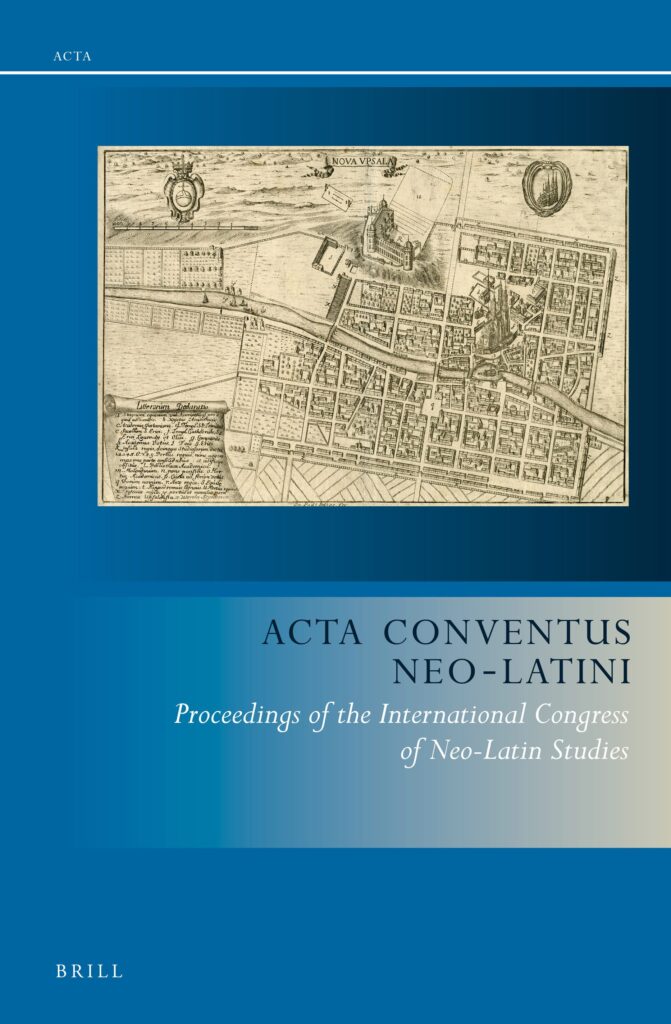Kristi Viiding „Improving Humanist Latin in the Periphery of North-Eastern Europe“

Viiding, Kristi (2024). Improving Humanist Latin in the Periphery of North-Eastern Europe. In: Florian Schaffenrath, Dirk Sacre (Eds.). Acta Conventus Neo-Latini Lovaniensis II. Proceedings of the Eighteenth International Congress of Neo-Latin Studies (Leuven 2022). (700−710). Leiden: Brill. (Acta Conventus Neo-Latini; 18).
Abstract
In the history of Latin, the competitive coexistence of medieval and humanist Latin in the fifteenth and sixteenth centuries is well known. Less attention has been paid to the fact that, despite the ideals of Ciceronianism and Lipsianism, humanist Latin was significantly influenced by the vernacular language(s) of speakers and their Latin teachers, and not just with respect to pronunciation. In Livonia, which had been influenced by the German school system and by standards of Latin before and after the Lutheran reformation, political affiliation with the Polish-Lithuanian Commonwealth (1561–1625) led to direct contact with the Italian humanists and to the discovery of their concept of Neo-Latin. In 1587, the Riga city secretary David Hilchen (1561–1610) prepared a speech, De amabili civium Christianorum concordia paraenetica oratio, to improve the quality of which he commissioned thorough language editing by the Italian humanist and court historiographer in Poland, Gian Michele Bruto (1517–1592). Analysis of Bruto’s revisions reveals the main gaps in Neo-Latin idiom used by Northern Baltic literati through the eyes of an Italian humanist.